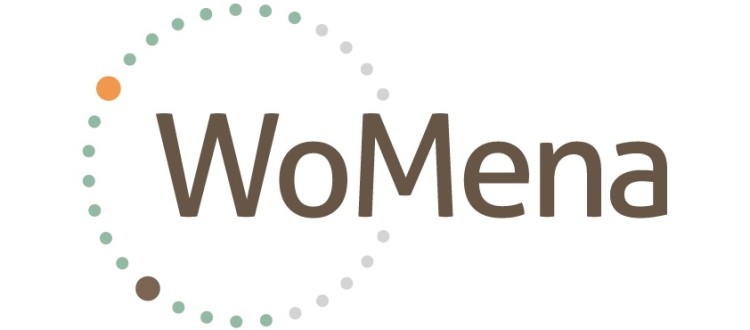Global Research Update #18
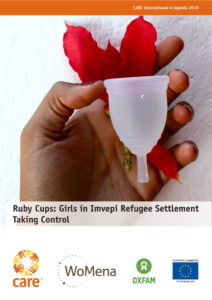 CARE International and WoMena Uganda (2018): Ruby Cups: Girls in Imvepi Refugee Settlement Taking Control. The Menstrual Hygiene Management pilot was conducted among 80 refugee women and girls, aged 15-30 years in Imvepi refugee settlement over four phases, namely (1) exploration, sensitization and training of trainers, (2) trainer trial period, (3) beneficiary training, and (4) menstrual cup (MC) trial period of beneficiaries and final evaluation. In addition to the fact that female received specialized training to become trainers, Role Model Men were also included in the training. Monthly evaluations were conducted during the 3-month pilot; between April and July 2018. End-line evaluation visit took place in July 2018. Findings: results from the base-line indicated that participants lacked the essentials to manage their menstruation safely and with dignity; 87% of recipients reported using the MC consistently throughout the 3-month trial period; the end-line questionnaire showed 94% of users were very satisfied with the comfort of using the MC; users reported getting over the initial fear of using the MC after a few cycles; male and community involvement showed to be an integral component of the success of users adopting the MC. Respondents reported the MC requires less water for cleaning as it requires 1 litre of water, compared to 15 litres of water for cleaning the reusable methods; self-reported adherence to safe care and user guidelines was high among participants, with correct cleaning, hand washing and storage procedures reported; access to privacy for inserting and emptying the MC and access to soap were reported as the main challenges related to MC use.
CARE International and WoMena Uganda (2018): Ruby Cups: Girls in Imvepi Refugee Settlement Taking Control. The Menstrual Hygiene Management pilot was conducted among 80 refugee women and girls, aged 15-30 years in Imvepi refugee settlement over four phases, namely (1) exploration, sensitization and training of trainers, (2) trainer trial period, (3) beneficiary training, and (4) menstrual cup (MC) trial period of beneficiaries and final evaluation. In addition to the fact that female received specialized training to become trainers, Role Model Men were also included in the training. Monthly evaluations were conducted during the 3-month pilot; between April and July 2018. End-line evaluation visit took place in July 2018. Findings: results from the base-line indicated that participants lacked the essentials to manage their menstruation safely and with dignity; 87% of recipients reported using the MC consistently throughout the 3-month trial period; the end-line questionnaire showed 94% of users were very satisfied with the comfort of using the MC; users reported getting over the initial fear of using the MC after a few cycles; male and community involvement showed to be an integral component of the success of users adopting the MC. Respondents reported the MC requires less water for cleaning as it requires 1 litre of water, compared to 15 litres of water for cleaning the reusable methods; self-reported adherence to safe care and user guidelines was high among participants, with correct cleaning, hand washing and storage procedures reported; access to privacy for inserting and emptying the MC and access to soap were reported as the main challenges related to MC use.
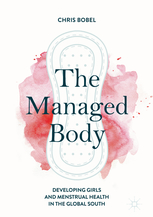 Bobel, C (2019): The Managed Body. In her book, she indicates how Menstrual Hygiene Management (MHM) organisations frame the issues by claiming menstruating girls encounter ‘a hygienic crisis’. Faced by the challenges of capturing attention and directing resources, MHM advocates often inadvertently rely upon weak evidence and spectacularised representations to promote a product-centered, consumerist agenda that actually accommodates more than it resists the core problem of menstrual stigma.
Bobel, C (2019): The Managed Body. In her book, she indicates how Menstrual Hygiene Management (MHM) organisations frame the issues by claiming menstruating girls encounter ‘a hygienic crisis’. Faced by the challenges of capturing attention and directing resources, MHM advocates often inadvertently rely upon weak evidence and spectacularised representations to promote a product-centered, consumerist agenda that actually accommodates more than it resists the core problem of menstrual stigma.
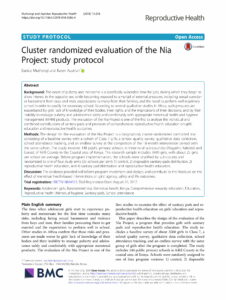 Muthengi, E et al. (2018): Cluster randomized evaluation of the Nia Project: study protocol. A longitudinal, cluster-randomized controlled trial with aim of examining the effect of individual and combined contributions of sanitary pads and provision of comprehensive reproductive health education on girls’ education and reproductive health, including 3489 girls from 140 public primary schools in three rural sub-counties of Kilifi County in the Coastal area of Kenya. Schools were randomly assigned to one of four program versions: (1) control, (2) disposable sanitary pads distribution, (3) reproductive health education, and (4) disposable sanitary pad distribution and reproductive health education. Girls received interventions over a period of 5 school terms from May 2017 to December 2018; interventions include: (1) provision of Zana Africa’s Nia Teen brand disposable sanitary pads, and (2) reproductive health education, including menstrual hygiene management (MHM) as an extra curricular program for girls enrolled in school. The project’s hypothesis is that distribution of the disposable sanitary pad will increase school attendance and participation/engagement in class; reproductive health education will lead to an increase of menstrual health knowledge and attitudes, gender norms, and self-efficacy. The combination of the two intervention components will increase the effect size for all outcomes, resulting in school retention, reduced unwanted sex, delayed pregnancy and delayed first sex.
Muthengi, E et al. (2018): Cluster randomized evaluation of the Nia Project: study protocol. A longitudinal, cluster-randomized controlled trial with aim of examining the effect of individual and combined contributions of sanitary pads and provision of comprehensive reproductive health education on girls’ education and reproductive health, including 3489 girls from 140 public primary schools in three rural sub-counties of Kilifi County in the Coastal area of Kenya. Schools were randomly assigned to one of four program versions: (1) control, (2) disposable sanitary pads distribution, (3) reproductive health education, and (4) disposable sanitary pad distribution and reproductive health education. Girls received interventions over a period of 5 school terms from May 2017 to December 2018; interventions include: (1) provision of Zana Africa’s Nia Teen brand disposable sanitary pads, and (2) reproductive health education, including menstrual hygiene management (MHM) as an extra curricular program for girls enrolled in school. The project’s hypothesis is that distribution of the disposable sanitary pad will increase school attendance and participation/engagement in class; reproductive health education will lead to an increase of menstrual health knowledge and attitudes, gender norms, and self-efficacy. The combination of the two intervention components will increase the effect size for all outcomes, resulting in school retention, reduced unwanted sex, delayed pregnancy and delayed first sex.
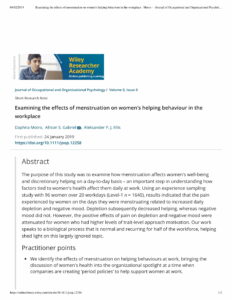 Motro, D et al. (2019): Examining the effects of menstruation on women’s helping behaviour in the workplace. An experience sampling method with the aim of examining how menstruation affects women’s well-being and helping on a day-to-day basis was conducted in United States among 96 working women recruited from professional networks and received two (morning and afternoon) surveys a day for 20 consecutive workdays assessing helping that day at work, menstruation, pain, negative mood, and depletion. Findings: women felt more pain on menstrual days and it positively related to depletion and negative mood; menstruation affected helping via pain and depletion, but not negative mood. However, the impacts of pain on depletion and negative mood were less for those who had higher levels of trait-level approach motivation.
Motro, D et al. (2019): Examining the effects of menstruation on women’s helping behaviour in the workplace. An experience sampling method with the aim of examining how menstruation affects women’s well-being and helping on a day-to-day basis was conducted in United States among 96 working women recruited from professional networks and received two (morning and afternoon) surveys a day for 20 consecutive workdays assessing helping that day at work, menstruation, pain, negative mood, and depletion. Findings: women felt more pain on menstrual days and it positively related to depletion and negative mood; menstruation affected helping via pain and depletion, but not negative mood. However, the impacts of pain on depletion and negative mood were less for those who had higher levels of trait-level approach motivation.

